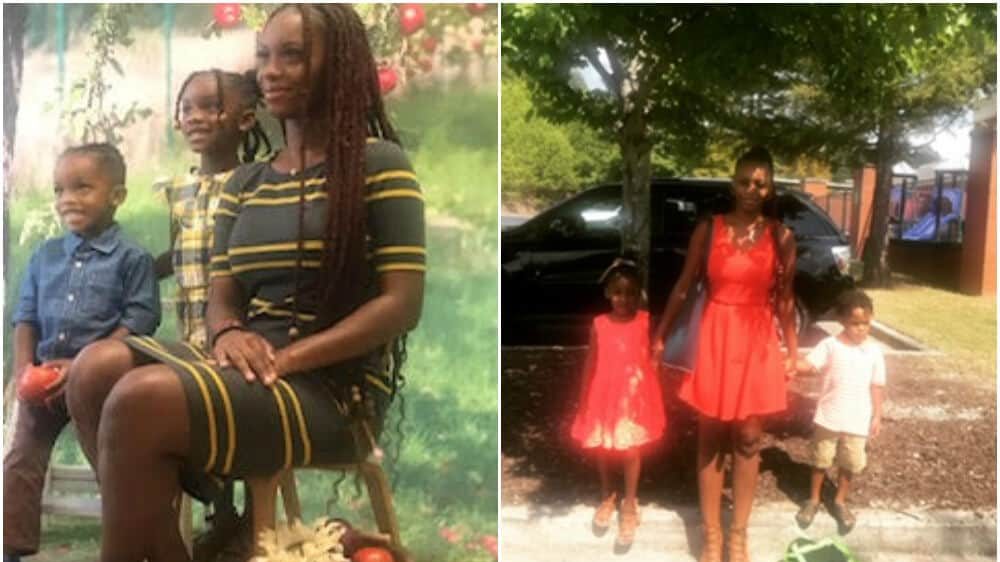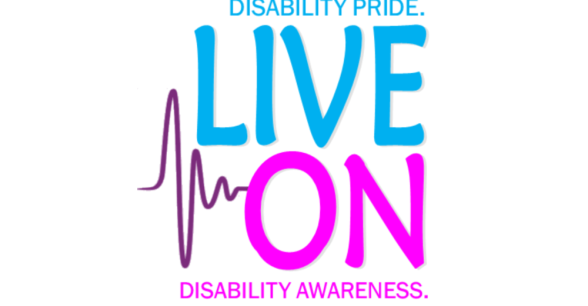Finding Community Supports is Key to Parenting with a Mental Health Disability
In honor of #MentalHealthAwareness Month, and in anticipation of our Parenting without Pity Podcast, here’s a Q&A with a terrific disabled mom and disability activist, Cierra Reid, from Atlanta, Georgia.
CIERRA: I am the single mother of two young children. I’m a twin, I’m the oldest of four. I am 28 years old. I enjoy being artsy, I’m good with my hands, I love painting, I’m a hairstylist and just a very outgoing, fun person to hang around. And in the disability community, I’m an activist. I enjoy reaching out to other parents that have disabilities and I find that’s my passion. I find that in that community I feel more welcome. It’s just a beautiful group of people that enjoy being around each other, and despite our differences, we all just want to be loved. So I’m finding that that’s the community for me and my family.
ANNA: What was your experience growing up and how did you get connected to the disability community? I think, in my experience, and with a lot of people I’ve talked to, it’s been a bit of a struggle because we weren’t connected as children or young adults, and so finding that community later in our lives was really exciting.
CIERRA: As a child growing up, school was always challenging for me, like I couldn’t do anything. I got approached in high school – one of my teachers pulled me aside and he asked me if I had a learning disability. And I didn’t know how to respond to that. I was like, “I don’t think so, I mean, I don’t know.” It really was an eye-opening moment for me because I never got treated different, but I always struggled in school.
ANNA: And after that point, did things change for you?
CIERRA: After that point, I graduated a year later after my twin sister. My young adult life was challenging, and my sister left for college, and I had my first real mental breakdown where I was hospitalized, and it was really scary for my whole family. That was the turning point, and everybody realized that, okay, maybe there’s something here.
ANNA: And then how did you get connected to the disability community after that?
CIERRA: After my diagnosis it took me a long time to adjust to it. I got pregnant, and when I got pregnant, I think it triggered a lot of emotional things up for me. I was freaking out, trying to figure out, am I prepared? What am I doing wrong? What am I doing right? Parenting was always important to me. I always knew I wanted to be a parent. But I think it threw off my balance mentally.
I had a good job working as a medical assistant. That was basically my dream job for me after I had two kids, because I had a flexible schedule, weekends off, holidays off, and I was just planning my life. But I had another breakdown and I was hospitalized, and once I returned back to work, I worked the whole week and I got fired because they found out about my disability. And so I tried to fight for my job as much as I could, and luckily I was able to do that because of our Independent Living Center here in Atlanta, disABILITY LINK. They assigned me to a specialist and a counselor to help me advocate for myself. And from there, it’s just been a group of people that opened their arms to me and my kids and was like, “We’re here for you.”
ANNA: We want to ask about what your advice is for parents who don’t have any connection to the disability community but have disabled kids. In my experience, often, if you go into these parenting groups of parents with disabled kids there’s a lot of hostility to disabled adults or just fear and angst over having a disabled child. What is your advice to those other parents, based on your experience growing up, and what do you want parents to know?
CIERRA: I would let them know parenting is not only for a certain type of individual. Parenting is for anybody. Just because of your status in society, I don’t think that should be a hindrance towards you not being able to experience parenting.
ANNA: Do you have any advice for parents who have disabled children, and anything you wish your parents could have known, or just for parents who aren’t necessarily aware that there is a disability community that they can connect their kids into to have that sort of guidance and mentorship?
CIERRA: I think a lot of parents are not aware of the Independent Living Centers in their state. When I first was diagnosed, my family didn’t know who to reach out to for help. My advice would be we need to bring more awareness to the disability community and not in a way that says, “Oh, I feel bad for you.”
They tried to take my kids at one point because of my disability and that was pretty hard on me. I didn’t know what to do, I didn’t know where to go, but luckily I had a disability community in my back pocket that said “We can get through this,” and that’s one of the main reasons why I was able to put one foot in front of the other, because I knew that there was a community out there.
ANNA: So, I’m white, but I’ve had conversations with other African American parents and other parents of color in the disability community, and there’s this reckoning with the fact that the way disability is thought about or talked about is different among some communities of color, and also that when communities of color think about the disability community it comes across as a super white place. What is your advice for parents of color as far as connecting to the Independent Living Centers?
CIERRA: In my community we don’t look at mental illness, we don’t take care of our mental illness, and for a lot of people in my community and my family, now that they’ve seen what has happened to me, they’ve just now really taken it seriously. I think that the African American community needs to look at mental illness more than just like, “Oh that person’s lazy,” or, “That person might be having a bad day or something.” Because eventually what happens is we just push stuff down. We’re so strong, that’s one thing I have, I didn’t even want to look into my disability until I was basically forced against the wall. Because mentally, we want to be strong.
ANNA: Even within the disability community, there is a stigma around mental health and mental illness. Why is it so important that mental health is included in the conversation?
CIERRA: Honestly I think they should teach classes about mental health. I’m noticing how important it is, even for my kids. My daughter will sit and do yoga, we’ll sit and meditate. My daughter likes to drink tea, lately, because that’s something she like to do for her mental state, and she’s letting me know now at the early age of five. She’ll be asking me, “Mommy can you make tea?” I think it’s important we sit down and really get into your mind, express yourself. We color, we paint, we do a lot of expressing our minds, and I think we need to learn how to do more of that. Parents need to teach our kids different outlets. I think it should be definitely all in the conversation, right along there with all the other disabilities.
The disability community has helped me be a better parent. I can finally say, “Okay we got a rhythm.” Sometimes emergency things happen like my breakdown, and for those things I really do need support sometimes, because they can be challenging. You have to be there for somebody. Just being there to hold them, and I think that it’s important people can experience that type of unconditional love.That’s a different type of love, you know? It’s beautiful.
About Rooted In Rights
Rooted in Rights exists to amplify the perspectives of the disability community. Blog posts and storyteller videos that we publish and content we re-share on social media do not necessarily reflect the opinions or values of Rooted in Rights nor indicate an endorsement of a program or service by Rooted in Rights. We respect and aim to reflect the diversity of opinions and experiences of the disability community. Rooted in Rights seeks to highlight discussions, not direct them. Learn more about Rooted In Rights




I just wanted to say to Cierra, thank you for sharing your story. I am Latina, and culturally, we have similar struggles in regard to disabilities. As an early childhood educator, administrator, and advocate myself, I make an effort to grow awareness around these and other related issues, too. I, too, struggled with many issues and never had a diagnosis or support until adulthood, and we’re still figuring it out. It’s my passion and legacy work to make it easier for children and their families. Also, thank you, Anna and Rooted in Rights, for this beautiful and powerful platform. I was recommended to read this for my Doctoral Program, and it is such a beautiful discovery for me! In solidarity, Melinda